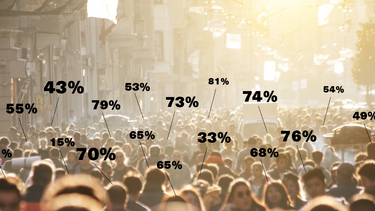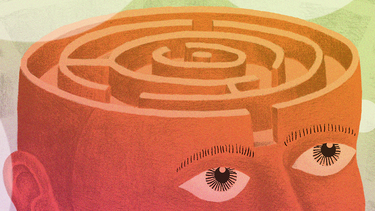Behavioral
Can Holiday Shopping Boycotts Make a Difference?
We asked Yale SOM’s Zoe Chance, an expert on consumer behavior and persuasion, what makes boycotts effective and how companies should respond.

When Prompting People to Make a Choice, the Consequence of Not Choosing Matters
In a new study, Yale SOM’s James Choi and his colleagues found that the implicit default—what happens if people don't make a choice—affects whether they make a choice at all.

Three Questions: Prof. Gal Zauberman on the Psychology of Taking Vacation Photos
In his research, Yale SOM’s Gal Zauberman has explored how taking photos affects an experience. We asked him whether documenting our summer adventures can actually improve them.

Study Finally Reveals How Many Cooks It Takes to Spoil the Broth
New research co-authored by Yale SOM’s Taly Reich looks at how we perceive collaborations of different sizes, and what those perceptions mean for how companies describe the creation of their products.

To Improve the Accuracy of Prediction Markets, Just Ask
In theory, prediction markets give the most accurate possible forecasts because they incorporate all available information. But a study by Yale SOM’s Jason Dana and his co-authors showed that in some cases, forecasts can be improved by simply asking people what they think will happen.

Can the Occasional ‘Nudge’ Make You Better at Your Job?
At Google, Laszlo Bock ’99 applied data analytics to human resources questions that have long been answered with hunches. His company Humu is now extending that approach for other organizations by providing AI-generated prompts to their employees.

How to Turn Your Mistakes into an Advantage
People and companies alike often try to hide their mistakes from public view. New research by Yale SOM’s Taly Reich reveals that sometimes you’re better off owning your gaffes.

The Illusion of Multitasking Improves Performance on Simple Tasks
Multitasking is inefficient—but we feel like we’re getting so much done. In a series of experiments, Yale SOM’s Gal Zauberman harnessed this mistaken impression.

Study Explores What Investors Are Really Thinking
Academic theories explaining which factors affect individual investment decisions abound, but few studies have involved asking people about the issue directly.

What Riddles Teach Us about the Human Mind
Yale SOM’s Shane Frederick and his co-authors investigated why certain riddles can confound us. They found that these “stumpers” expose mental models that blind us to possible answers.

Research-Based Tips for a Better New Year
What does the data say about making the most of 2019? We asked Yale SOM faculty to share self-improvement tips based on their research.
